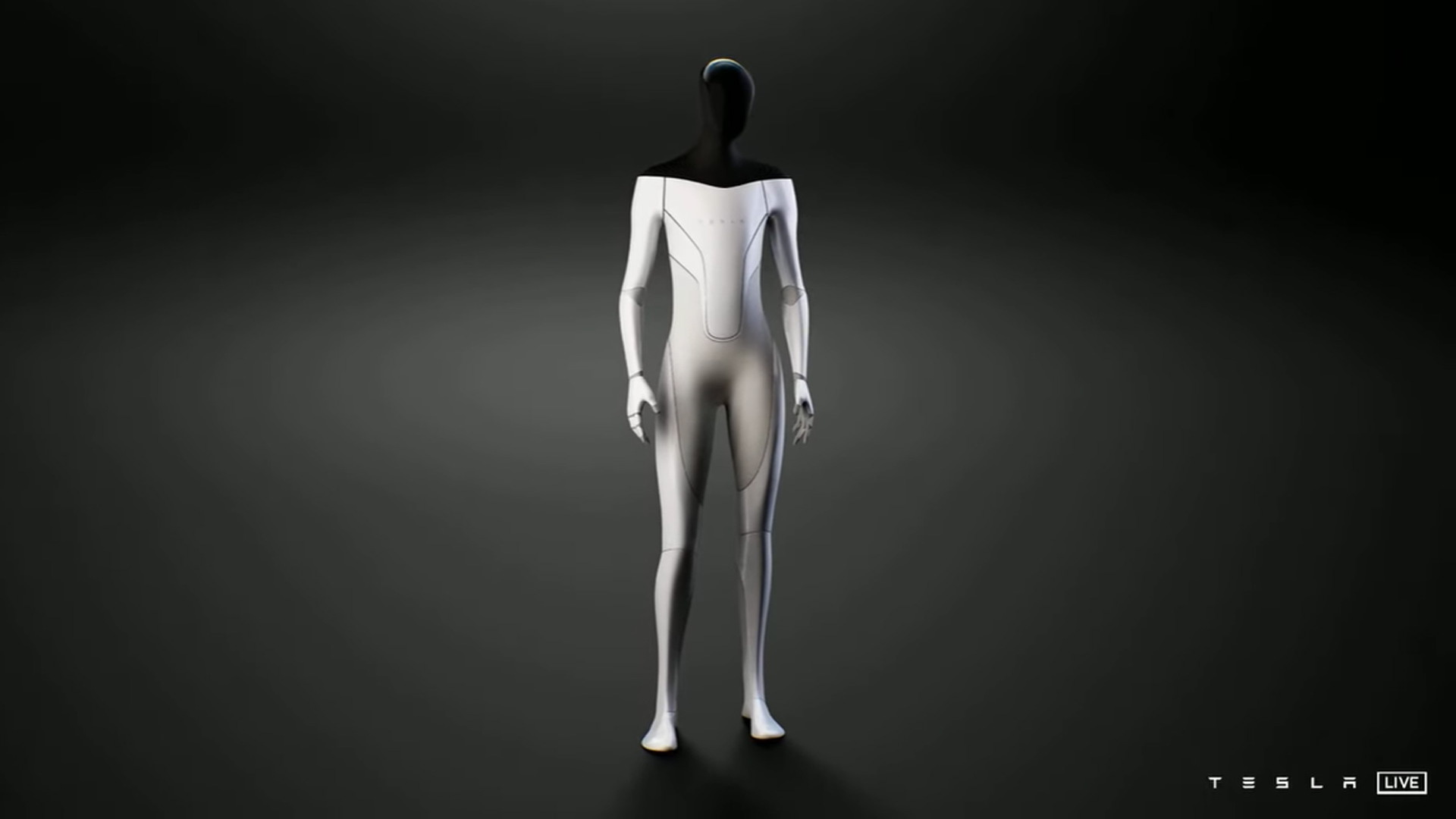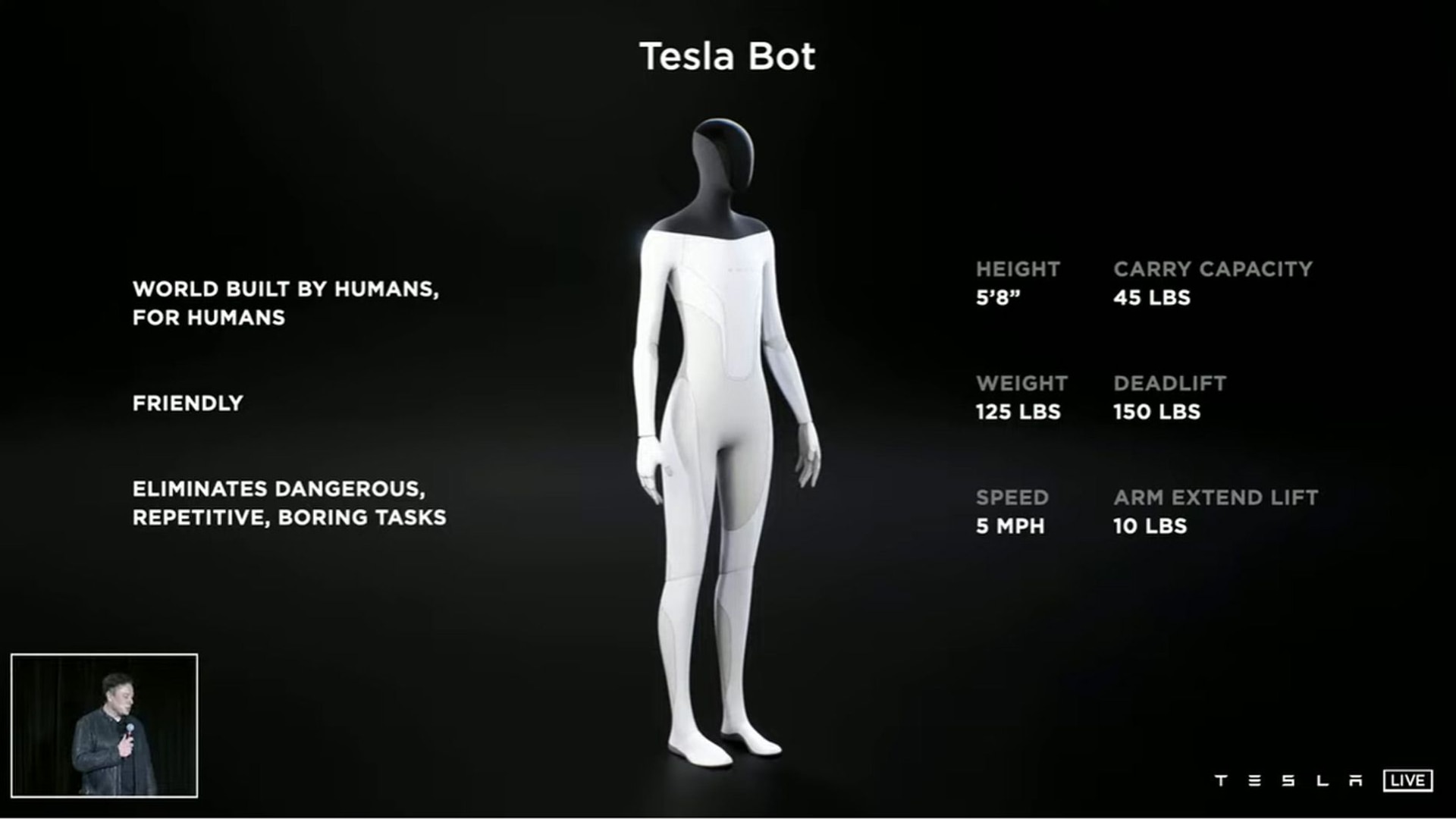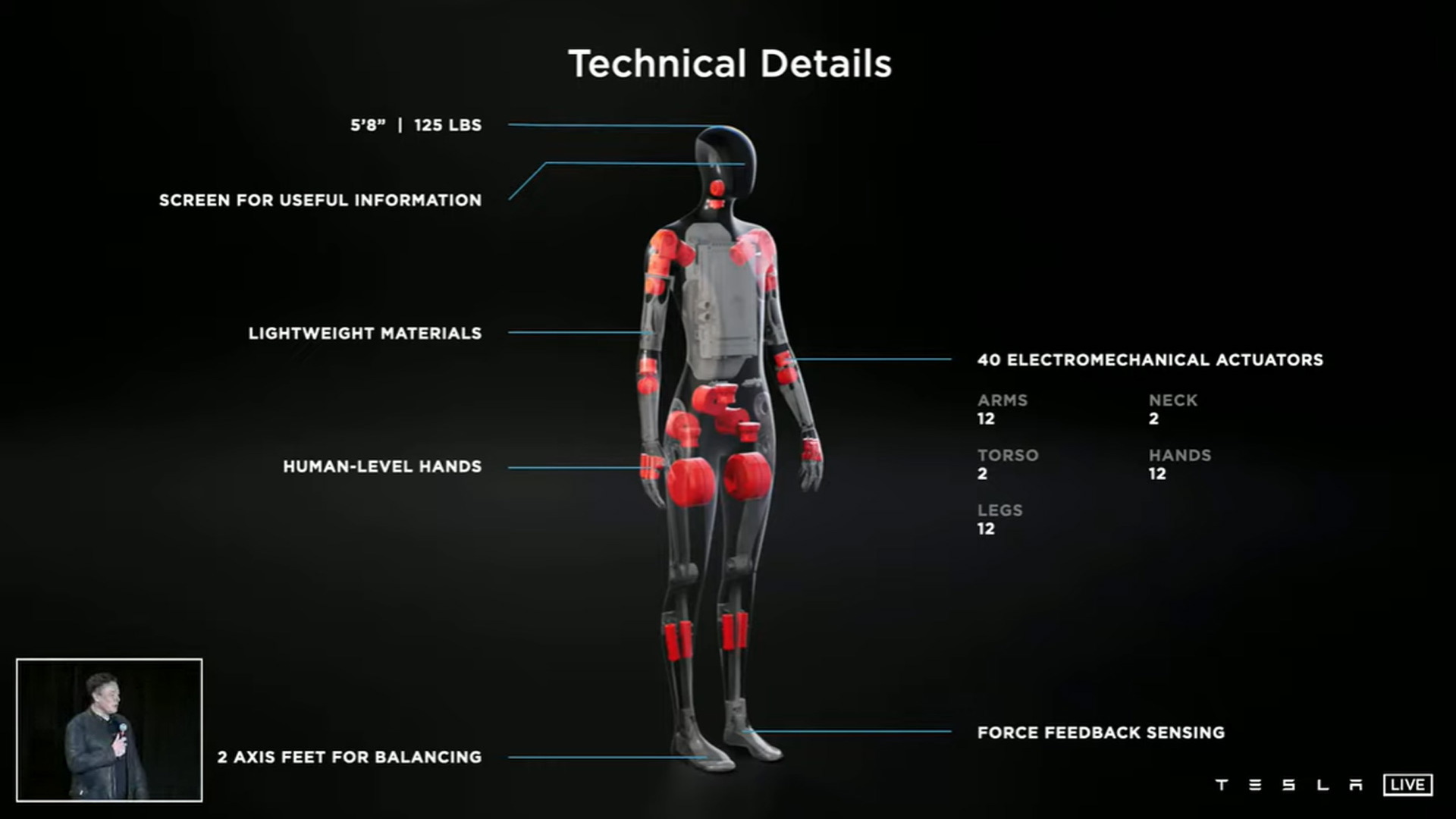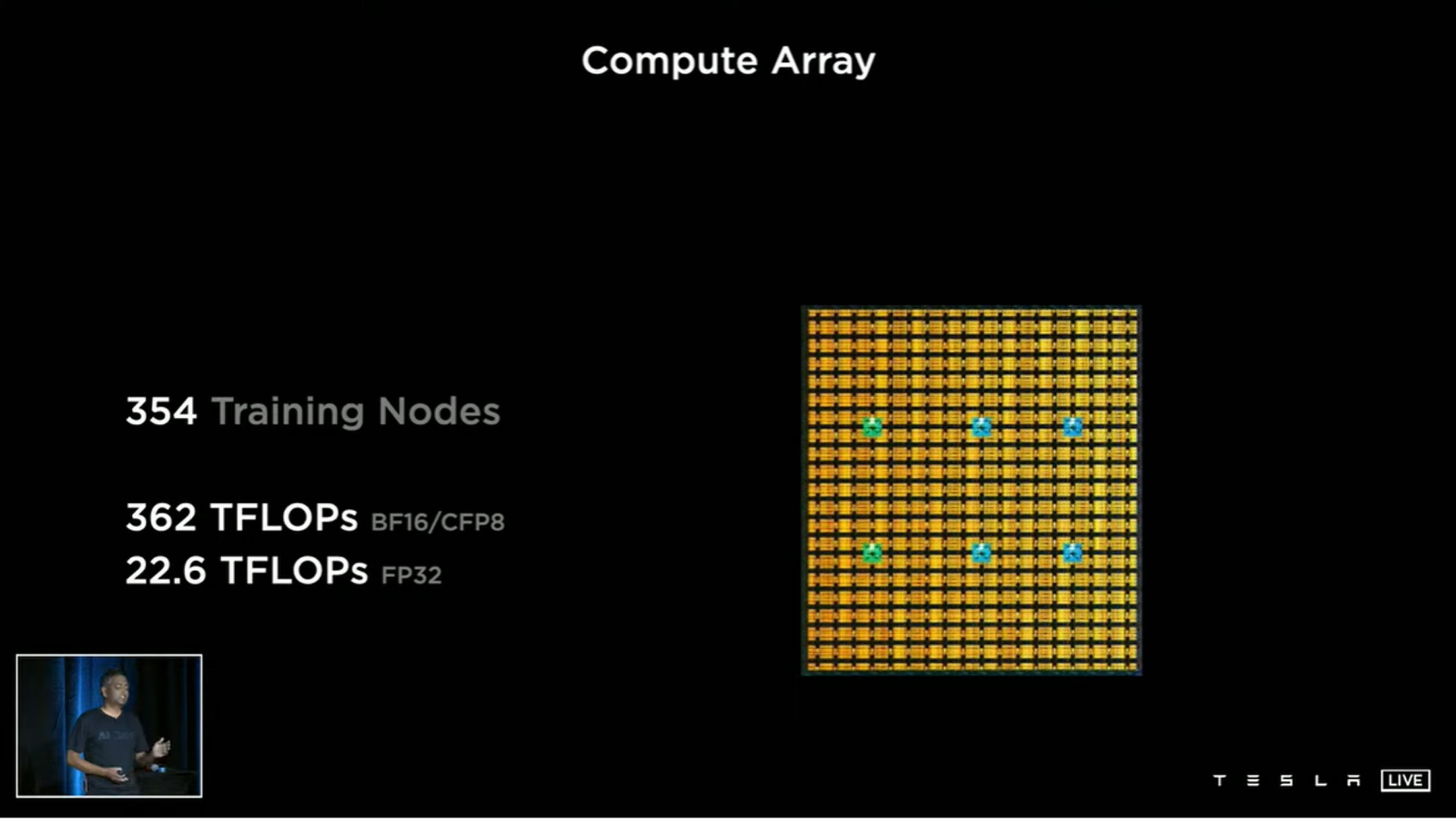Tesla on Thursday provided an update on its developments in artificial intelligence during a presentation at its plant in Fremont, California.
The highlight was the reveal of the Tesla Bot, a humanoid robot controlled by the same AI system Tesla is developing for the self-driving system used in its cars, and leveraging the company's expertise in other areas such as sensors, computers, batteries and actuators. Things are still at a very early stage but CEO Elon Musk said a prototype could be ready as early as next year.
The Tesla Bot stands just 5-foot-8 tall and weighs 125 pounds, so as to not be too intimidating. It also has a top speed of only 5 mph and can easily be overpowered, according to Tesla, making it easy to avoid if necessary. As Tesla said during the presentation, it wants the robot to come off as “friendly.”

Tesla Bot
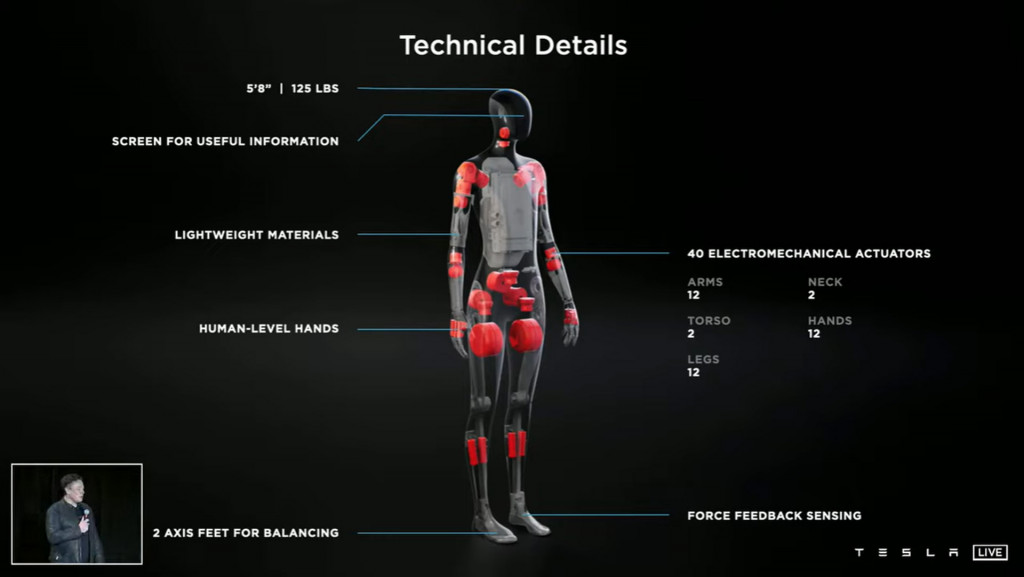
Tesla Bot
The company sees the robot as potentially replacing humans in dangerous, repetitive and boring tasks, for example working on a factory line or performing errands. And instead of a face, there's a screen that provides feedback.
But what will people do in a future when robots take up jobs involving menial tasks? According to Musk, there will be the need for some form of universal basic income.
Tesla isn't the first automaker to explore the potential for robot assistants. Honda was a pioneer with its ASIMO series of walking robots, the first of which was unveiled in 2000, and more recently Hyundai Motor Group has been investing heavily in the space, including acquiring robotics company Boston Dynamics last year.

Tesla D1 microchip for Dojo neural network training computer
Tesla's AI presentation, referred to as AI Day, also saw the company announce Dojo, a neural network training computer. Think of it as a powerful computer that uses data gathered from millions of miles of driving to “learn” how to perform actions on its own, i.e. without the need to be explicitly programmed with pre-defined algorithms. Dojo-trained software can then be pushed out to Tesla cars via over-the-air updates.
Tesla is developing its own computer chips to power Dojo, the latest of which is known as D1. Also revealed during AI Day, the chip features a 7-nanometer manufacturing process, with 362 teraflops of processing power. Tesla plans to place 25 of these chips onto a single tile, and 120 of these tiles come together across several server cabinets to create the computing power Tesla needs for Dojo.
Only a handful of days prior to the AI Day event, the National Highway Traffic Safety Administration (NHTSA) opened a formal safety probe into the company's Autopilot system after a series of crashes involving Teslas with the driver-assist feature engaged, and road-side emergency vehicles. The day after the announcement of the probe, Senators Richard Blumenthal of Connecticut and Ed Markey of Massachusetts asked FTC Chair Lina Khan to probe Tesla in its marketing of Autopilot and the more advanced Full Self-Driving driver-assist feature.
